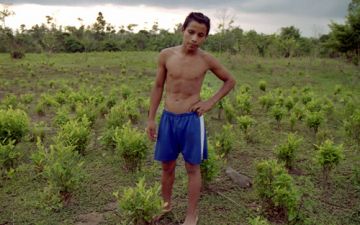El Charco
We arrived and found a group of campesinos living in an old gymnasium in town. Many of them were from Pueblo Nuevo, a town an hour upriver that was caught in fierce fighting between FARC and the Army a few months ago. They also told us that the guerillas helped them grow coca and they were afraid to return to their town. Their situation has definitely gone from bad to worse. We made a trip the next day to Pueblo Nuevo to see if there was anyone left...


